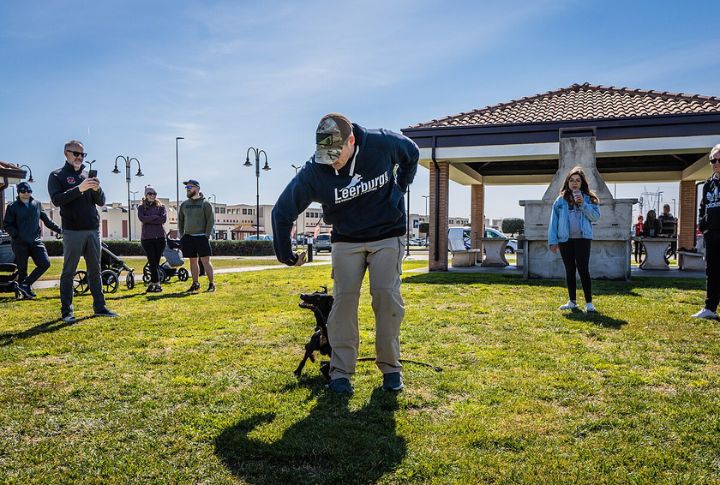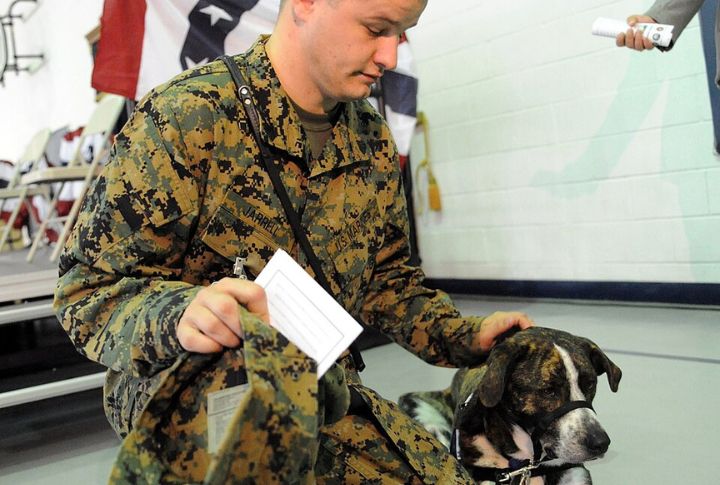What PTSD Service Dogs Do And Why Veterans Rely On Them

For many veterans, PTSD service dogs are more than companions—they’re essential partners in daily life. Their presence brings a sense of steadiness that can be hard to find elsewhere, offering support in visible and deeply personal ways. Here’s what these dogs do that makes them truly indispensable.
Creating A Sense Of Safety At Night

Service dogs don’t just help during the day—they stand watch at night. When veterans stir in bed, alert to shadows or noise, the dog’s steady calm resets the atmosphere. That silent reassurance transforms nighttime into a safer space, making deep, healing sleep possible again.
Interrupting Flashbacks And Nightmares

A sudden lick or gentle paw might seem small, but it can change everything in the middle of a flashback. Service dogs quickly catch the signs of distress and step in without hesitation. Some even wake their handlers from nightmares before the fear spirals any further.
Reducing Hypervigilance

Unfamiliar surroundings can keep veterans constantly on edge. But when a service dog stays relaxed, it sets a new tone. Handlers often mirror that calm, slowly letting go of the need to monitor every detail. In such situations, the dog’s composure speaks louder than any warning.
Providing Physical Barriers

Getting through a packed civilian space feels different with a service dog nearby. The individual regains control as the dog moves ahead or takes position behind, creating a protective gap. That physical buffer shields against overstimulation and aids in managing the sensory overload that crowds tend to bring.
Assisting With Medication And Routine Reminders

It is easy for routines to fall apart on difficult days, but aid dogs help keep things on track. A nudge may serve as a medication reminder, while subtle changes in behavior prompt morning or nighttime transitions. Such a reliable presence helps preserve consistency that might otherwise slip away.
Encouraging Social Interaction

Dogs often spark conversation, creating natural openings for veterans to connect with others. Strangers are more likely to engage, making social settings feel less isolating. These moments of interaction, however brief, help rebuild confidence and ease the path back into everyday human connection.
Detecting Anxiety Before It Escalates

Canines that assist with PTSD don’t wait for visible panic—they react early. Subtle cues like fidgeting or shallow breathing trigger alerts, and that early response gives users the window to practice grounding or breath control. It’s a quiet safeguard that helps prevent anxiety spikes from gaining momentum.
Facilitating Physical Exercise And Outdoor Activity

Veterans often regain a sense of routine through their dog’s daily care. Activities like walking, park visits, or keeping appointments naturally increase movement. This consistent physical engagement improves health, while the dog’s presence turns simple outings into meaningful steps toward strength and recovery.
Enhancing Independence

Getting through everyday errands can feel overwhelming, but service dogs help veterans do it solo. Whether entering a noisy building or navigating a sidewalk, their assistance removes the need for another person. That freedom builds confidence and makes day-to-day independence a reality again.
Securing Public Access Rights And Disability Protections

Not every dog gets a seat in restaurants or rides public transit, but these do. PTSD service dogs qualify as medical support animals, protected under federal disability laws. Veterans using them are guaranteed access to public places and services under specific veteran and disability rights programs.





